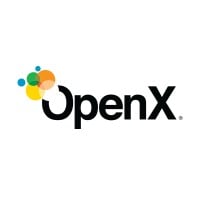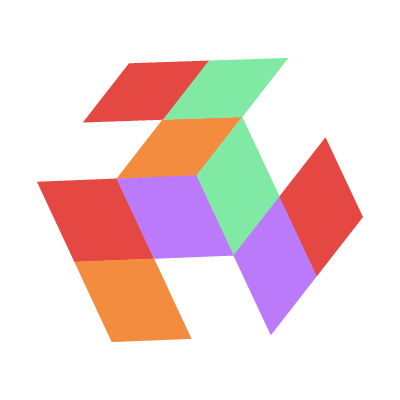Moonlite delivers high-performance AI infrastructure for organizations running intensive computational research, large-scale model training, and demanding data processing workloads.We provide infrastructure deployed in our facilities or co-located in yours, delivering flexible on-demand or reserved compute that feels like an extension of your existing data center. Our team of AI infrastructure specialists combines bare-metal performance with cloud-native operational simplicity, enabling research teams and enterprises to deploy demanding AI workloads with enterprise-grade reliability and compliance.
Your Role:You will be central to building our high-performance storage platform that enables research teams to work with massive datasets for AI training, large-scale simulations, and data-intensive computational workloads. Working closely with product, your platform team members, and infrastructure specialists, you’ll design and implement storage systems that deliver high-throughput data access, manage multi-TB to PB-scale datasets, and provide the data protection and lifecycle management required by enterprise and research organizations.
Job Responsibilities- Storage Platform Architecture: Design and build scalable storage orchestration systems supporting block, object, and file storage optimized for AI training datasets, model checkpoints, simulation data, and large-scale data processing pipelines.
- Research Cluster Storage: Design and implement storage systems for research computing environments including Kubernetes and SLURM clusters, enabling shared datasets, persistent storage for distributed training, model checkpoints, and high-throughput data access for batch processing workloads.
- High-Performance Data Access: Implement storage solutions that deliver consistent high-throughput and low-latency performance for demanding research workloads, including distributed training, large-scale simulations, and real-time data processing.
- Data Pipeline Engineering: Build robust data ingestion, processing, and movement systems that handle massive datasets, support efficient data loading for training pipelines, and enable seamless data access across compute infrastructure.
- Multi-Tiered Storage Orchestration: Build systems that coordinate across NVMe, SSD, and high-capacity storage tiers, placing and moving data based on access patterns and workload requirements.
- Enterprise Data Protection: Implement comprehensive backup, snapshot, replication, and disaster recovery systems that meet enterprise data protection requirements and support zero-data loss policies.
- Storage APIs & Integration: Create storage management APIs and SDKs that integrate seamlessly with compute platforms, research workloads, and financial data feeds.
- Observability and Performance: Build monitoring and optimization systems that ensure consistent storage performance, track capacity utilization, and provide visibility into data access patterns.
- Experience: 5+ years in software engineering with proven experience building storage platforms, distributed storage systems, or data infrastructure for production environments.
- Kubernetes Storage & Container Orchestration: Strong familiarity with Kubernetes storage architecture, persistent volumes, storage classes, and CSI drivers. Understanding of pods, deployments, stateful sets, and how Kubernetes manages storage resources.
- Storage Systems Expertise: Deep understanding of storage architectures including block storage, object storage, file systems, distributed storage, and performance optimization techniques.
- Programming Skills: Expert-level Python proficiency. Experience with C/C++, Rust, or Go for performance critical storage components is highly valued.
- Linux & Systems Programming: Strong experience with Linux in production environments, including file systems, storage subsystems, and kernel-level storage interfaces
- Data Systems Engineering: Strong background in building data pipelines, large-scale data processing systems, and managing data lifecycle at scale.
- Experience: 5+ years in software engineering with proven experience building compute platforms, container orchestration, or distributed systems for performance-critical applications.
- Storage Systems Expertise: Deep understanding of storage architectures including NVMe, distributed storage, caching strategies, and performance optimization for latency-sensitive workloads.
- Programming Skills: Expert-level Python proficiency. Experience with C/C++,, Rust, Go for performance-critical components is highly valued.
- Data Systems: Strong background in building data pipelines, ETL processes, and large-scale data processing systems.
- Platform & API Design: Proven experience building storage platforms with multi-tenancy, data isolation, and enterprise-grade reliability features.
- Problem Solving & Architecture: Demonstrated ability to solve complex performance and scalability challenges while balancing pragmatic shipping with good long-term architecture considerations.
- Autonomy and Communication: Comfortable navigating ambiguity, defining requirements collaboratively, and communicating technical decisions through clear documentation.
- Commitment to Growth: Growth mindset with focus on learning and professional development.
- Background provisioning or managing storage for research computing environments (Kubernetes, SLURM, or HPC clusters)
- Experience with high-performance storage solutions and their APIs
- Background with object storage systems (S3-compatible APIs) and distributed file systems
- Knowledge of storage networking technologies (NVMe-oF, iSCSI, storage fabric protocols)
- Understanding of AI/ML data pipeline requirements and model training data access patterns
- Experience building storage solutions for regulated industries with audit and compliance requirements
- Knowledge of time-series databases and market data storage optimization is a plus
- Extra points for experience with financial services data infrastructure and regulatory data protection requirements
- Python, NVMe, Distributed Storage Systems, C/C++, Rust, Go, Kafka, PostgreSQL, Redis, S3 APIs, Docker, Kubernetes, Terraform, FastAPI, Time-Series Databases
- Build Next-Generation Infrastructure: Your work will create the platform foundation that enables financial institutions to harness AI capabilities previously impossible with traditional infrastructure.
- Hands-On Ownership: As an early engineer, you’ll have end-to-end ownership of projects and the autonomy to influence our product and technology direction.
- Shape Industry Standards: Contribute to defining how enterprise AI infrastructure should work for the most demanding regulated environments.
- Collaborate with Experts: Work alongside seasoned engineers and industry professionals passionate about high-performance computing, innovation, and problem-solving.
- Start-Up Agility with Industry Impact: Enjoy the dynamic, fast-paced environment of a startup while making an immediate impact in an evolving and critical technology space.
We offer a competitive total compensation package combining a competitive base salary, startup equity, and industry-leading benefits. The total compensation range for this role is $165,000 – $225,000, which includes both base salary and equity. Actual compensation will be determined based on experience, skills, and market alignment. We provide generous benefits, including a 6% 401(k) match, fully covered health insurance premiums, and other comprehensive offerings to support your well-being and success as we grow together.
#li-remote
Top Skills

What We Do
Moonlite is building a cloud-native experience on-prem. Our software provides the control and customization enterprises need for AI.
Build Faster with Moonlite
Instantly download and deploy NIMS from NVIDIA or build your own applications with Hugging Face. Customize and deploy AI agents in one click or integrate your own with ease.
Total Control Over Your AI
Obtain the highest level of security by design for your private environments. Moonlite provides total visibility into all your resources, applications, and users.
Find Value with Your Use Case
Allocate resources in real-time as needed in your environment. Use the models that best align with your use cases. When a new model is released, test it out and power your applications with it.



.png)





